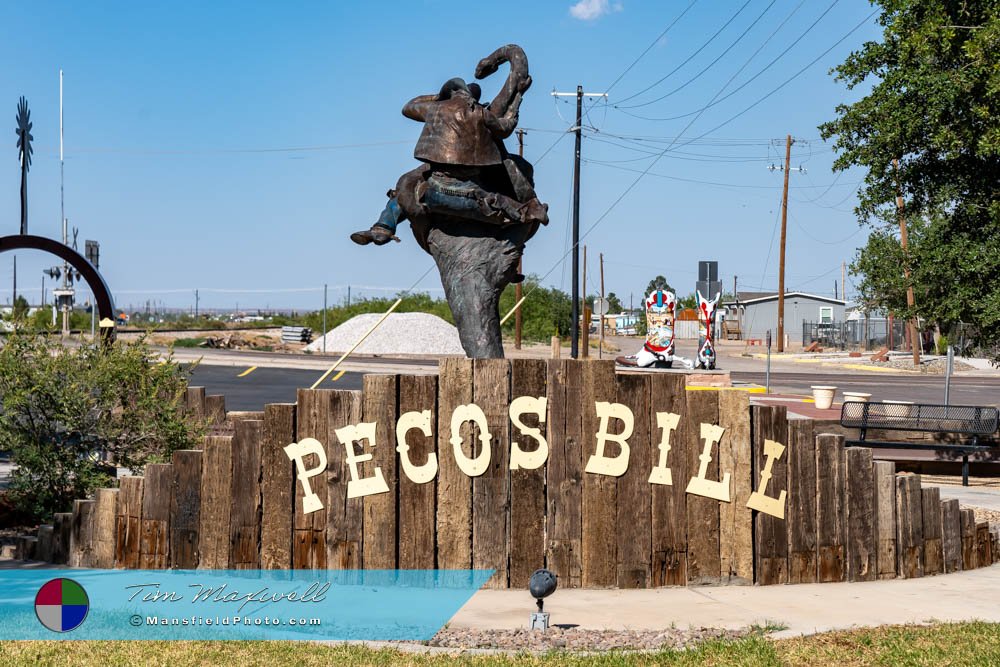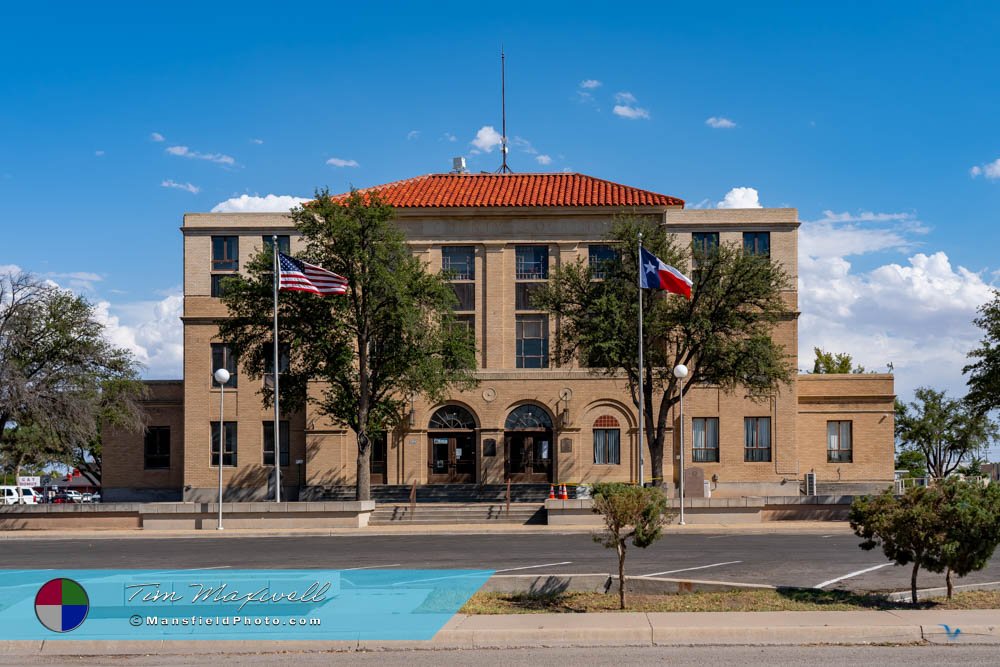Pecos, Texas
– A Town Steeped in the Spirit of the West.
Founded in the 1880s, Pecos has made a name for itself through its unique history, charming downtown, and agricultural legacy. The town is rich in Western heritage, famously known as the birthplace of the world’s first rodeo and as the home of the Pecos cantaloupes, prized for their sweetness. Today, visitors can explore its historic downtown, where a statue of Pecos Bill stands as a tribute to the town’s vibrant past and enduring folklore.
The Origins of the Town
Pecos was established in 1883 as a railroad stop on the Texas and Pacific Railway. Like many West Texas towns, it grew around the vital lifeline that the railway provided. Named after the nearby Pecos River, the town’s name derives from the Native American term “Pecos,” meaning “crooked,” referring to the river’s winding path. The settlement quickly became a hub for ranchers, farmers, and adventurers seeking opportunities in the untamed landscape of West Texas.
The town’s early days were defined by the rough-and-tumble spirit of the Old West. Cowboys, lawmen, and outlaws passed through, giving the town its wild reputation. Its connection to cattle ranching and agriculture allowed it to flourish, and the development of the downtown area reflected its growth.
A Walk Through Downtown
The downtown area has preserved much of its historic charm, with old brick buildings and storefronts lining the main streets.
While modern businesses have moved in, the area still holds the rustic atmosphere of the Old West, providing a sense of nostalgia for those who visit.
One of the most iconic landmarks in downtown is the statue of Pecos Bill, the legendary cowboy from American folklore. The larger-than-life figure sits proudly in the town, representing the mythos of the Old West. Pecos Bill, known as the cowboy who could “lasso a tornado” and ride a cougar, embodies the spirit of rugged individualism and exaggerated frontier tales. His statue is a popular stop for visitors, blending humor and history with the essence of the town.
The downtown area also features several museums that celebrate the history of Pecos and West Texas, including the West of the Pecos Museum. Housed in an old saloon and hotel, this museum offers a glimpse into life in the town during the late 19th and early 20th centuries. From exhibits on cowboy culture to the famous rodeo history, the museum brings the town’s past to life.
Famous Pecos Cantaloupes
Beyond its cowboy heritage, the area is also known for its agricultural contributions, particularly its cantaloupes. These melons, grown in the fertile soil around the Pecos River, have achieved fame for their exceptional sweetness and flavor. For decades, Pecos cantaloupes have been celebrated as some of the finest in the country, with their harvest eagerly awaited each summer.
The town has even hosted festivals to honor this agricultural staple, and visitors during the growing season often make it a point to taste these famous melons. The rich agricultural tradition remains a cornerstone of its identity, adding to the town’s cultural and economic significance.
The Rodeo Legacy
In addition to cantaloupes and cowboy legends, the town holds a unique place in rodeo history. It is home to the world’s first rodeo, held on July 4, 1883.
The event was a natural extension of the cowboy way of life in West Texas, allowing ranchers and cowhands to showcase their skills in events like bronc riding and steer roping. The rodeo has grown into an annual tradition, drawing crowds from all over to witness one of the longest-running celebrations of cowboy culture.
Each summer, the town continues to host its annual rodeo, complete with parades, contests, and entertainment. The rodeo’s enduring popularity reflects the town’s deep connection to the traditions of the Old West.
Present Day
Today, it stands as a testament to the enduring legacy of West Texas. Its downtown area, while maintaining its historical roots, has adapted to modern times with local businesses, shops, and restaurants. The balance between preserving the past and embracing the future is evident in the town’s revitalized spirit.
The statue of Pecos Bill and the stories that surround him continue to attract visitors, while the rodeo and cantaloupes remain key elements of the town’s identity. Though it is no longer a wild frontier town, it retains the same sense of adventure, pride, and community that defined its early days.
Whether you come to experience the cowboy folklore, taste the sweet cantaloupes, or explore the rich history of its downtown, this town offers a unique slice of Texas life that bridges the past with the present.
📸 Interested in More Photos of This Town?








